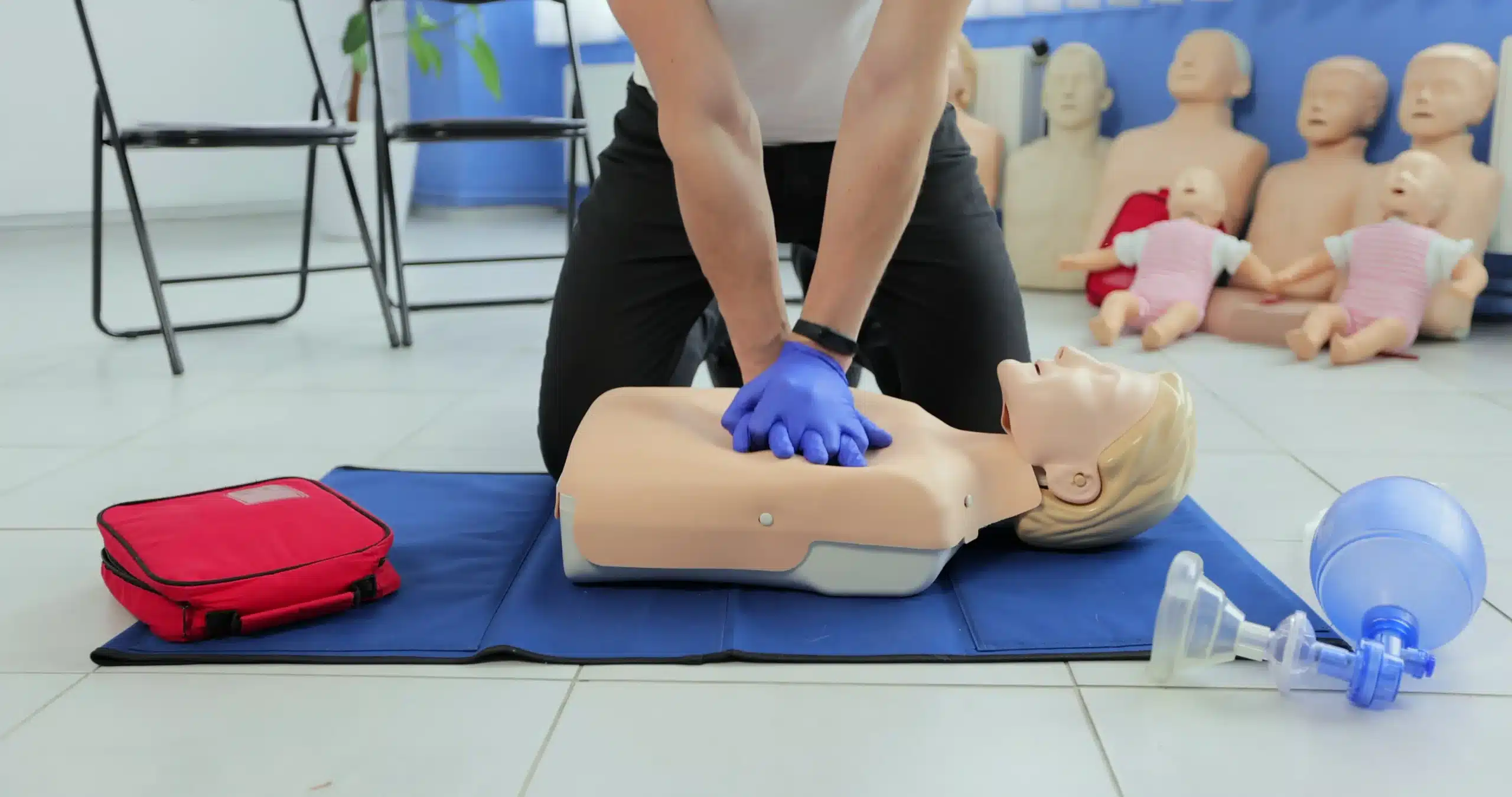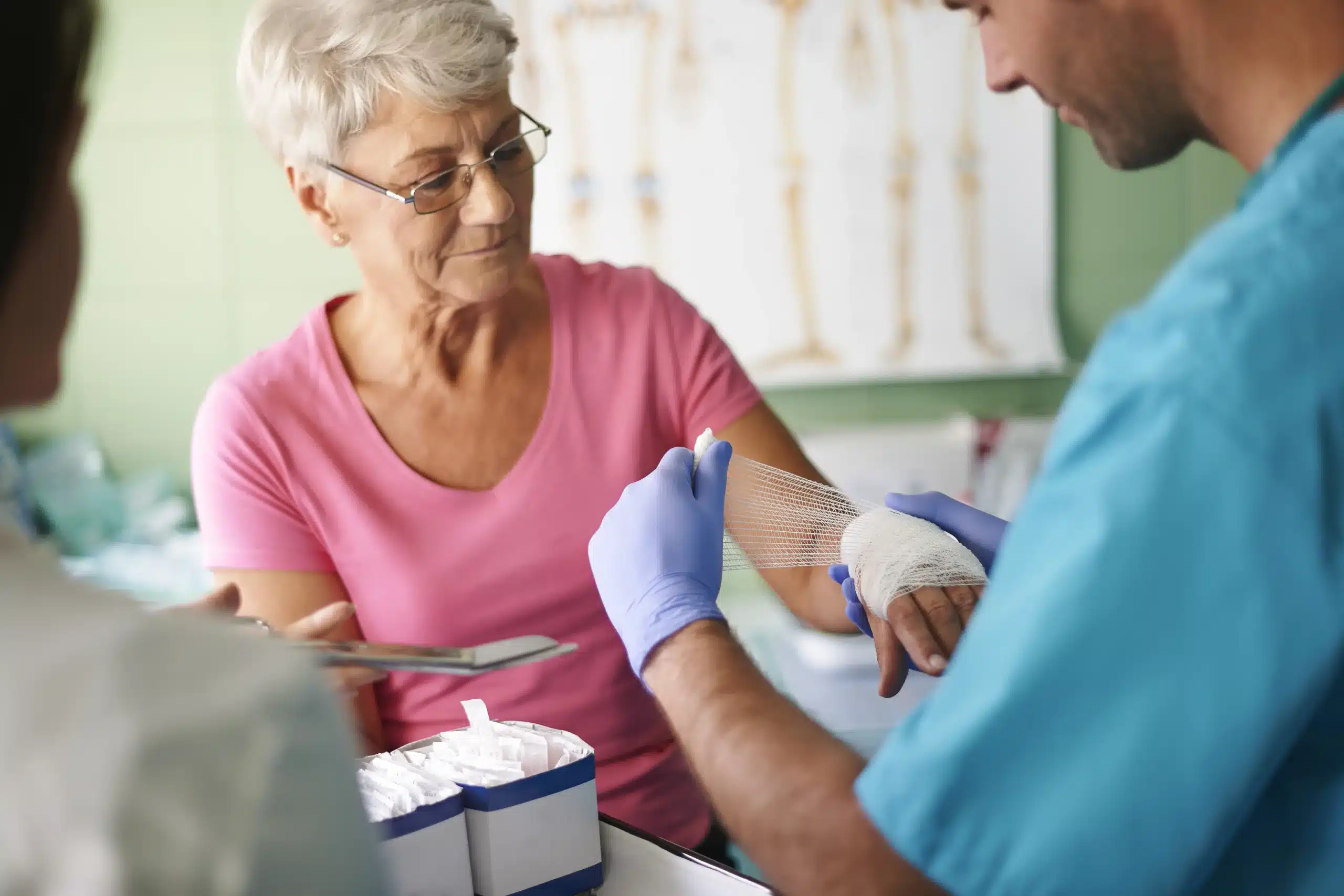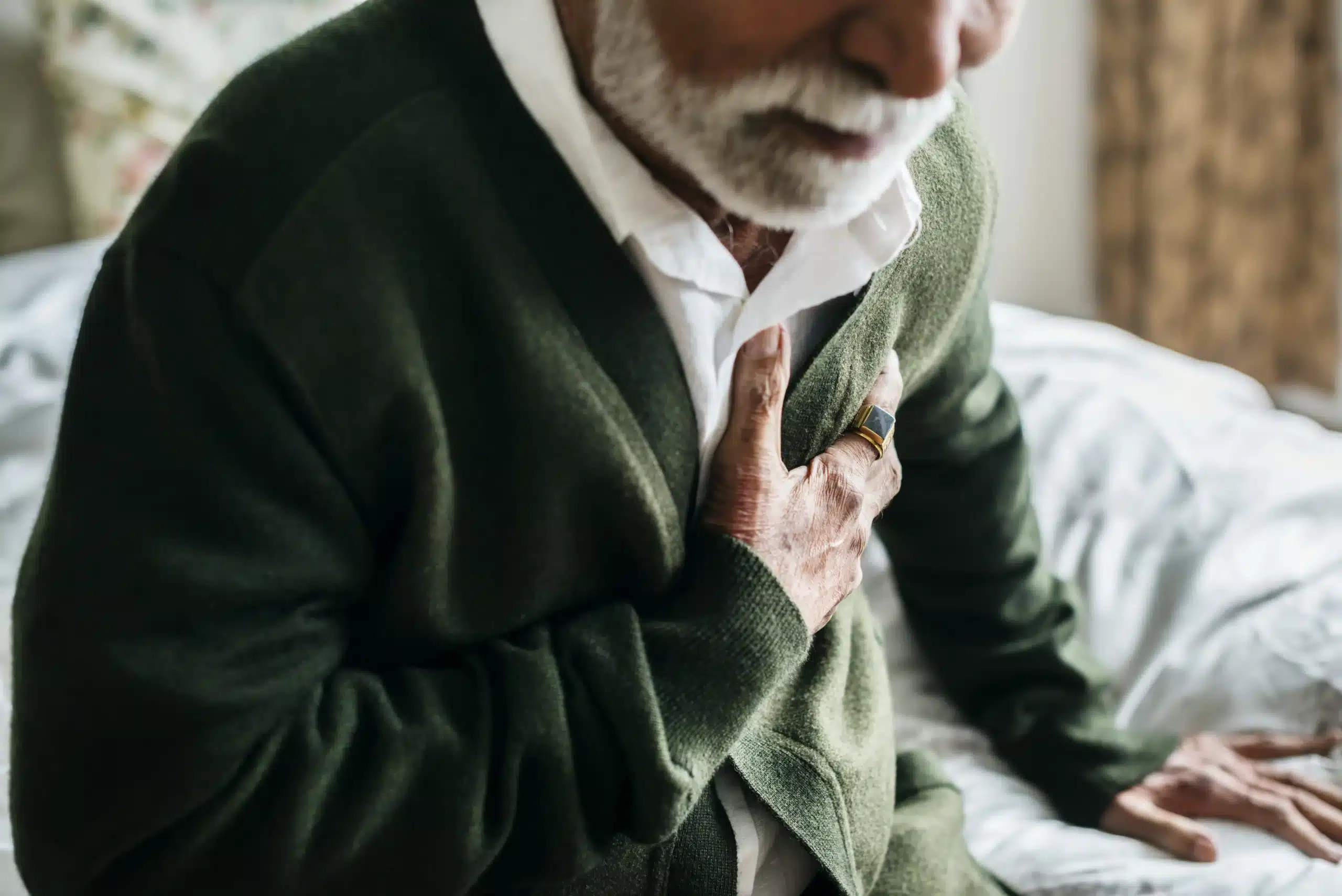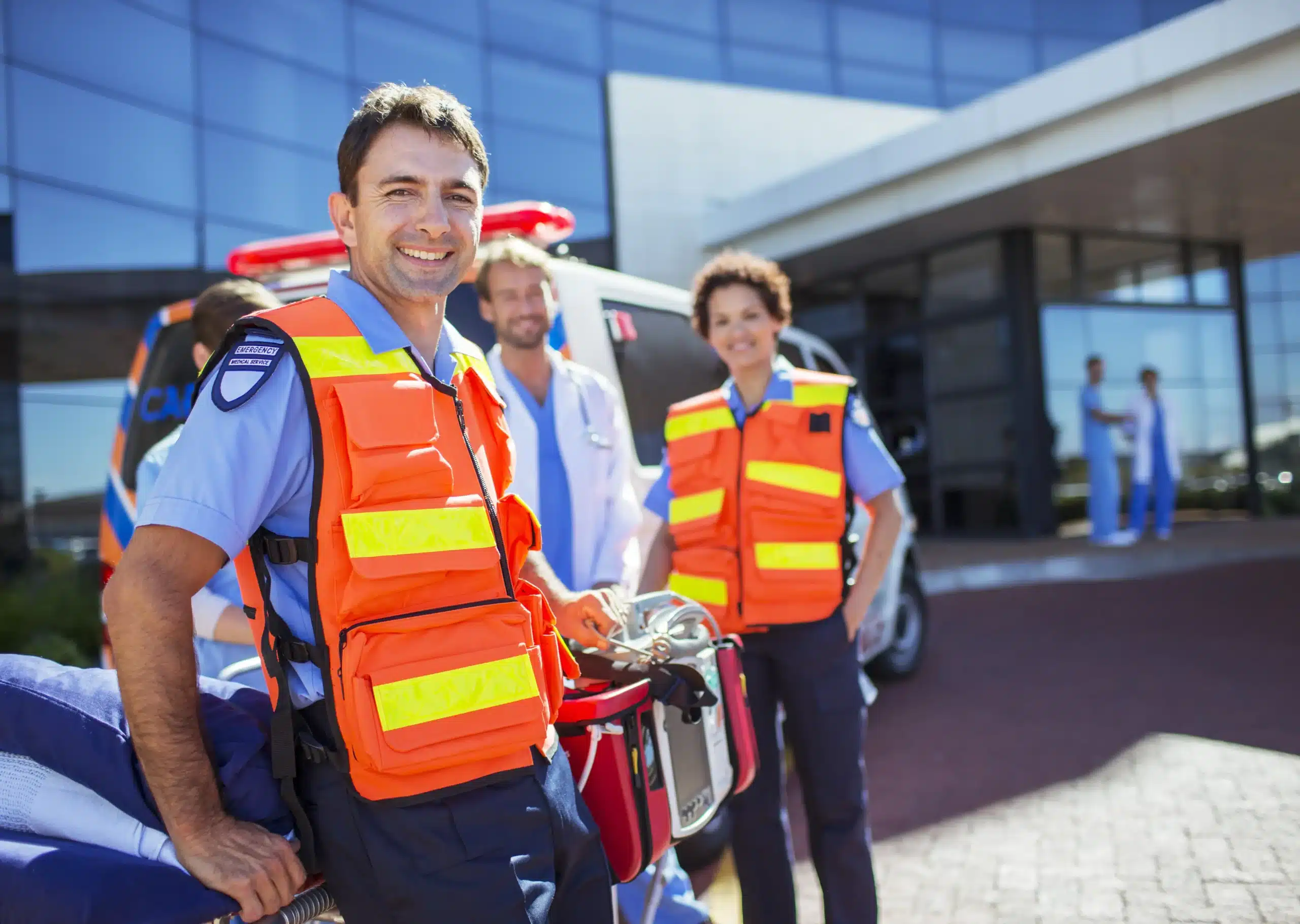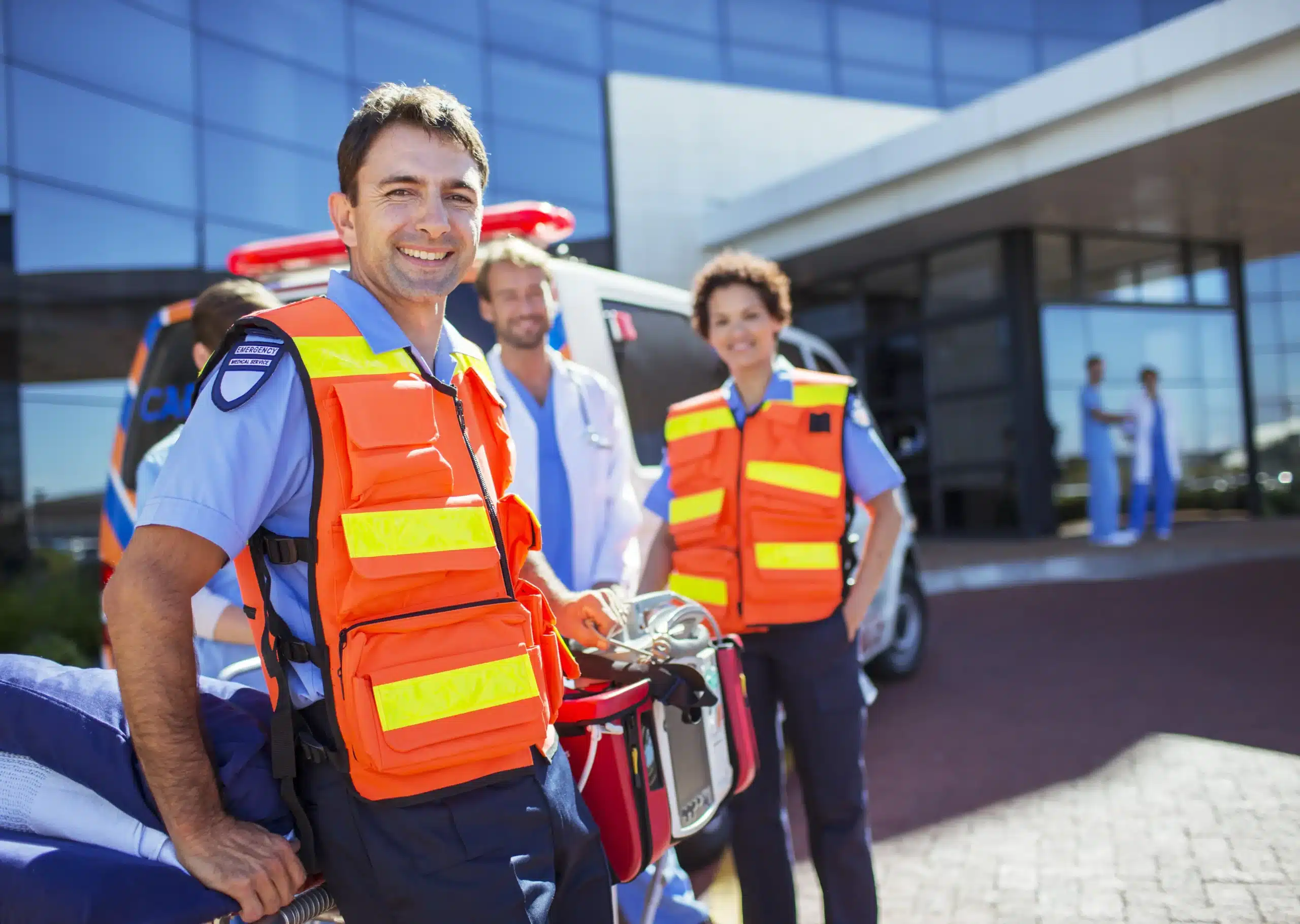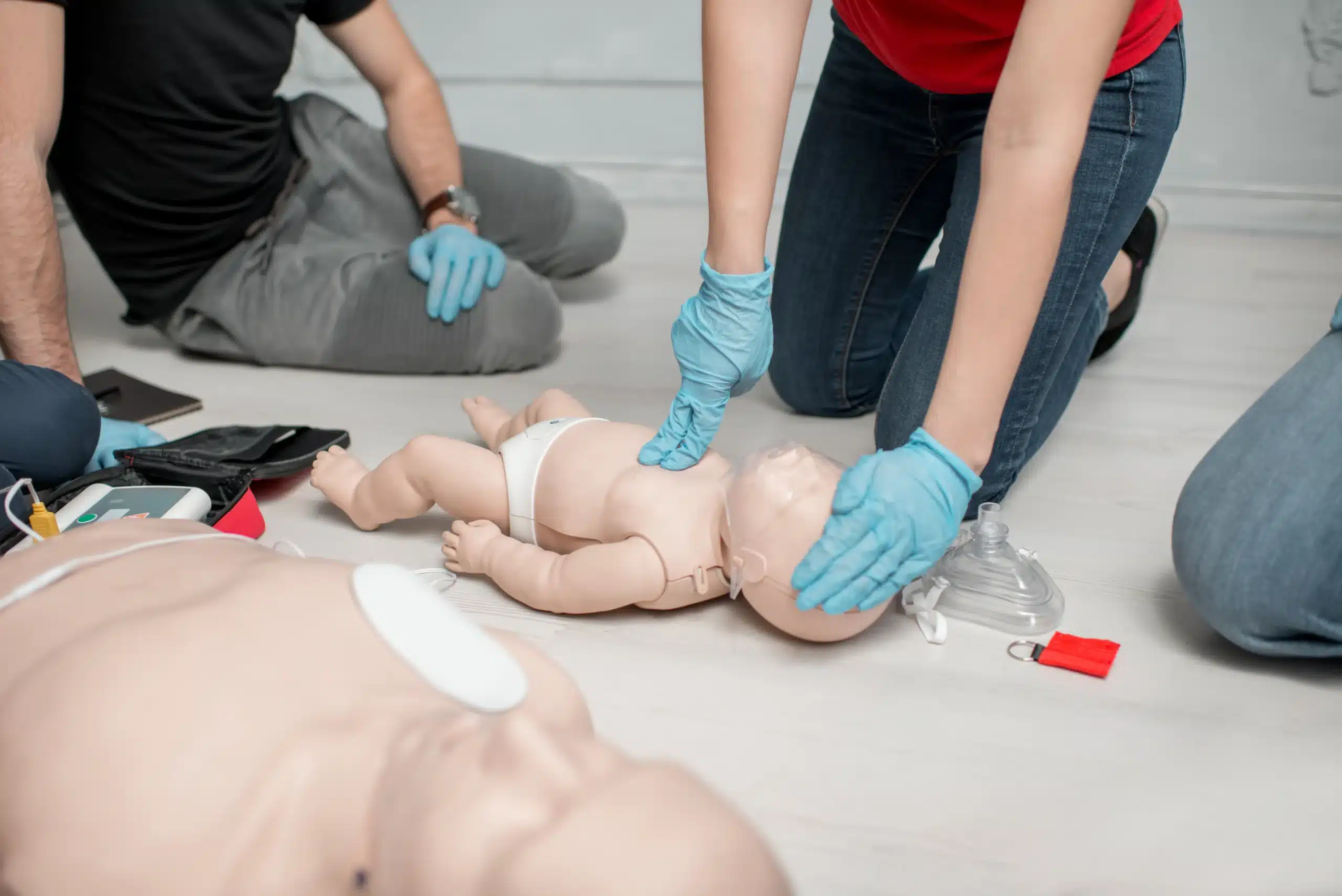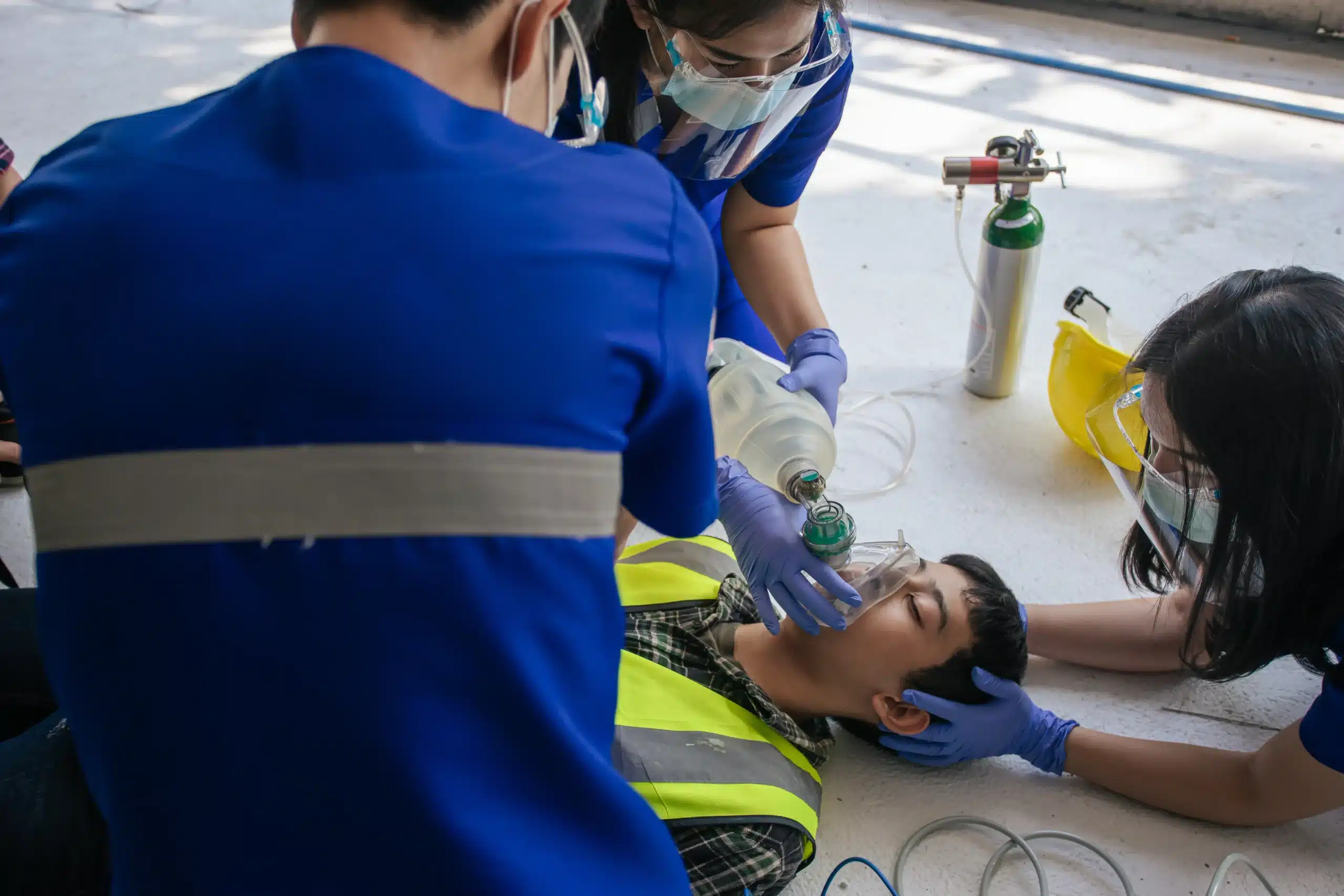For healthcare providers in Brentwood, maintaining top-notch CPR skills is paramount. But between demanding schedules and evolving best practices, staying current with certifications can be a challenge. Resuscitation Quality Improvement (RQI) offers a solution. RQI in Brentwood provides a modern, flexible approach to CPR training, emphasizing short, frequent practice sessions and immediate feedback. This post will guide you through everything you need to know about RQI, from understanding its core principles to finding the right training program in Brentwood. We’ll cover the key benefits of RQI, the different courses available, and how to register for classes.
Key Takeaways
- RQI offers a flexible and efficient approach to CPR training: The blended learning format and shorter, more frequent sessions make it easier to fit into your busy schedule.
- RQI covers a range of certifications: From BLS to PALS, RQI courses provide comprehensive training and real-time feedback to build confidence in various emergency situations.
- Choosing the right provider enhances your learning experience: Look for convenient locations, competitive pricing, and a supportive learning environment to maximize your training benefits.
What is RQI?
What is Resuscitation Quality Improvement (RQI)?
RQI, short for Resuscitation Quality Improvement, is a program developed by the American Heart Association. It helps healthcare professionals maintain their CPR skills through short, frequent practice sessions, rather than one lengthy recertification course every two years. This low-dose, high-frequency approach emphasizes continuous improvement and skill assessment, ensuring providers are always ready to respond effectively in emergencies. You can learn more about RQI and how it differs from traditional CPR training on the RQI Partners website.
Why is RQI Important in Healthcare?
In healthcare, seconds can matter. RQI ensures that healthcare providers’ CPR skills are consistently sharp. Regular practice with RQI technology provides immediate feedback, helping providers master high-quality CPR techniques and build confidence. This consistent reinforcement can lead to better patient outcomes. The American Association of Critical-Care Nurses discusses the importance of RQI in improving clinician performance. The RQI eCredential verifies competency in these essential skills, giving providers and their teams confidence in critical situations. More information about RQI completion cards and the eCredential is available on the RQI Partners FAQ page. Studies have shown that RQI significantly improves CPR quality among staff, with a noticeable increase in performance over time. This ongoing training helps prevent skill decay and ultimately contributes to improved patient survival rates.
RQI Courses in Brentwood
RQI courses offer healthcare providers in Brentwood a flexible and effective way to stay current on their certifications. Here’s a breakdown of the key RQI courses available:
BLS (Basic Life Support)
The BLS RQI course in Brentwood covers the fundamental skills needed to respond to life-threatening emergencies. It emphasizes high-quality CPR and provides a streamlined learning experience. This blended learning approach combines online modules with hands-on skills sessions, allowing participants to learn at their own pace and receive personalized feedback. The focus is on mastering essential techniques like chest compressions, rescue breaths, and using an AED. BLS certification is crucial for a wide range of healthcare professionals, from first responders to physicians.
ACLS (Advanced Cardiovascular Life Support)
The ACLS RQI course builds upon the foundation of BLS, focusing on advanced life-saving techniques for adult patients experiencing cardiac arrest or other cardiovascular emergencies. This program uses low-dose, high-frequency training to reinforce critical skills and improve knowledge retention. Participants practice essential interventions, including airway management, rhythm recognition, and medication administration. ACLS certification is vital for healthcare professionals working in critical care settings, emergency departments, and intensive care units.
PALS (Pediatric Advanced Life Support)
PALS RQI training equips healthcare providers with the specialized knowledge and skills needed to respond to pediatric emergencies. The course emphasizes a systematic approach to assessment, resuscitation, and stabilization of infants and children. Simulation stations provide realistic scenarios and real-time feedback, allowing participants to hone their skills in a safe and controlled environment. PALS certification is essential for pediatricians, nurses, paramedics, and other healthcare professionals involved in the care of young patients.
Find RQI Classes in Brentwood
Finding the right RQI training center in Brentwood is key to a smooth and successful certification process. Here’s what you need to know about locating RQI courses in your area.
Safety Training Seminars Location
Safety Training Seminars offers American Heart Association CPR, BLS, ACLS, and PALS courses right here in Brentwood. Our training center is conveniently located at 380 Carrol Court, Suite G, Brentwood, CA 94513. We’re committed to providing high-quality instruction and excellent customer service, all at the lowest prices in Contra Costa County, backed by our Low Price Guarantee. We proudly serve Brentwood, Antioch, and Pittsburg, making us a convenient option for those also looking for CPR classes in Antioch. You can find more information on our BLS, ACLS, and PALS certifications on our website.
Other Training Centers
While the American Heart Association’s RQI program is a popular choice for medical professionals seeking BLS, ACLS, and PALS certification, it’s always a good idea to explore all available options. Researching various training centers helps you find the best fit for your schedule, learning style, and budget. You can often find RQI courses offered through local hospitals, medical centers, and other specialized training organizations.
Class Schedules and Availability
At Safety Training Seminars, we understand busy schedules can make finding time for training challenging. That’s why we offer daily classes in Brentwood. The RQI program’s streamlined three-step process—online coursework, skills testing, and same-day certification—makes it even easier to fit into your life. This efficient approach allows you to quickly gain the skills and credentials you need. We also offer group discounts for those training together.
Register for RQI Classes
Ready to enhance your lifesaving skills? Registering for an RQI course is straightforward. Here’s what you need to know about signing up, finding discounts, and handling payment.
Register Online
RQI courses offer a streamlined, flexible approach to certification. The American Heart Association RQI program is a popular way for medical professionals in Brentwood to get their BLS, ACLS, and PALS certifications. Many providers, including Safety Training Seminars, allow online registration, making scheduling convenient. Check the websites of training centers in your area or the American Heart Association website for online registration options.
Discounts and Group Rates
Looking to train a team or save on individual registration? Many RQI providers offer discounts for group registrations. Safety Training Seminars offers group discounts, making it cost-effective for organizations to train multiple staff members at once. Contact training centers directly to inquire about group rates and available discounts. You can also check their websites for information on special offers.
Payment and Reimbursement
RQI courses typically involve a fee that covers training materials, equipment use, and the RQI eCredential, which verifies your competency. Payment methods vary by provider and may include credit card, debit card, or other electronic payment options. Some employers offer reimbursement for professional development courses like RQI. Check with your employer to see if reimbursement is an option.
RQI Training in Brentwood: What Makes it Unique?
RQI training stands out from traditional CPR courses with its innovative and flexible approach. Here’s what makes it a great option for healthcare professionals in Brentwood:
Blended Learning
RQI uses a blended learning format, combining online coursework with hands-on skills practice. You can complete the online portion at your own pace, reviewing key concepts and procedures before attending the in-person skills session. This flexible format makes it easier to fit the training into a busy schedule. The online portion typically takes a few hours, allowing you to focus on mastering the material. Brentwood CPR classes offer this convenient RQI training option.
Real-Time Feedback and Simulation
RQI classes use high-tech simulation stations to provide real-time feedback on your CPR performance. These simulations create realistic emergency scenarios, allowing you to practice your skills in a safe and controlled environment. The simulation stations offer immediate coaching and feedback, helping you refine your technique and build confidence. This focus on real-world application ensures you’re prepared to respond effectively in actual emergencies. SureFire CPR discusses the advantages of this simulation-based training.
Same-Day Certification
Upon successful completion of the RQI course, you receive your American Heart Association BLS, ACLS, or PALS certification the same day. This streamlined process eliminates waiting periods, allowing you to quickly update your credentials. This immediate certification is particularly helpful for busy professionals who need to maintain their qualifications.
Benefits of RQI Training
RQI training offers several benefits for healthcare providers, from skill mastery to increased confidence in emergencies. Let’s explore some key advantages:
Master Skills with Frequent Practice
Traditional CPR training often involves lengthy, infrequent sessions. RQI takes a different approach, emphasizing short, frequent practice sessions using innovative technology. This “low-dose, high-frequency” method, combined with immediate audiovisual feedback, helps you retain skills and improve competency. Think of it like learning a musical instrument—consistent practice is key to mastery. This regular reinforcement translates to better performance in real-life emergencies, ultimately leading to improved patient outcomes. The RQI program offers a variety of learning tools with an emphasis on skills mastery, and frequent practice helps maintain these crucial skills, potentially improving patient outcomes as highlighted in this study on Resuscitation Quality Improvement.
Improve Team Collaboration
RQI training often involves simulation stations where healthcare teams can practice together. These simulations provide real-time coaching and feedback, allowing teams to refine their communication and coordination during resuscitation efforts. Working together in these realistic scenarios helps build a shared understanding of roles and responsibilities, leading to more effective teamwork in actual emergencies. RQI classes use simulation stations that provide real-time coaching and feedback to hone CPR skills.
Build Confidence in Emergencies
Knowing you have the skills and training to handle a crisis can make all the difference in a high-pressure situation. RQI training not only provides the skills but also instills confidence in healthcare providers. The frequent practice and performance feedback build a sense of competence, empowering individuals to respond effectively during cardiac arrests or other emergencies. Studies have shown a correlation between RQI training and increased confidence among healthcare professionals, particularly those likely to encounter cardiac arrest. The RQI eCredential verifies guideline-compliant competency, further reinforcing this confidence. This increased confidence, combined with improved skills, can significantly impact patient outcomes. This research on the implementation of resuscitation quality improvement explores the impact of RQI training on confidence and competence.
Get Ready for Your RQI Class
So, you’re signed up for an RQI course—great! Here’s what you can expect before, during, and after your class at Safety Training Seminars. We want you to feel prepared and confident walking through our doors.
What to Expect
RQI classes blend online learning with in-person skills sessions. This approach allows you to learn the core material at your own pace and then demonstrate your skills in a hands-on environment. Expect a friendly, supportive atmosphere where our instructors prioritize your learning and success. The RQI program is designed to be efficient and flexible, fitting into your busy schedule. You’ll be learning alongside other healthcare professionals in Brentwood, all working toward the same goal of improving resuscitation skills.
Pre-Course Materials
Before your in-person skills session, you’ll complete an online component. This typically takes a few hours and covers the core concepts and protocols for your chosen discipline (BLS, ACLS, or PALS). Make sure you finish this portion before arriving for your skills check-off. This allows your instructor to focus on hands-on training and answer any specific questions you may have. Check your email for instructions on accessing the online materials after you register for your class.
Time Commitment and Scheduling
One of the biggest advantages of RQI is its flexible scheduling. Instead of lengthy, infrequent renewal courses, RQI uses short, frequent sessions to reinforce skills and maintain competency. These sessions are designed to fit easily into your workday. RQI’s approach has been shown to improve skill retention and potentially even patient outcomes. This method, combined with immediate feedback from RQI technology, helps build confidence and proficiency in delivering high-quality CPR. You’ll receive an eCredential verifying your competency upon successful completion of your skills session.
Maintain Your RQI Certification
Keeping your RQI certification current is easier than you might think. Instead of cramming for one big test every two years, RQI uses short, frequent training sessions to help you stay sharp.
Renewal Requirements
The American Heart Association’s Resuscitation Quality Improvement (RQI) program asks providers to complete training sessions each quarter. This approach reinforces your skills and keeps your CPR knowledge fresh.
Continuing Education
RQI’s emphasis on continuing education means you’re always learning and improving. Regular practice with RQI technology provides immediate feedback, helping you fine-tune your technique and build confidence. This consistent reinforcement can lead to better patient outcomes.
RQI eCredential
After completing your RQI training, you’ll receive an eCredential verifying your CPR skills. This digital credential demonstrates your competency in high-quality CPR and shows your commitment to providing excellent care.
Top RQI Providers in Brentwood
Finding the right RQI provider is key to a positive and effective learning experience. Here are some options to explore in Brentwood:
Safety Training Seminars
Safety Training Seminars offers American Heart Association-certified courses in CPR, BLS, ACLS, PALS, and First Aid. They pride themselves on convenient scheduling, with classes available daily, including weekends. A major draw is their commitment to affordability, offering the lowest prices on CPR/BLS renewal courses in Contra Costa County, guaranteed. This makes them a practical choice for high-quality, budget-friendly training. Their focus on customer service creates a supportive learning environment. You can find more information on their BLS courses, ACLS certification, and PALS training. They also offer discounts for group classes.
American Heart Association
While the American Heart Association (AHA) doesn’t directly conduct training, they set the gold standard for resuscitation training. They developed the Resuscitation Quality Improvement (RQI) Program, which establishes guidelines for high-quality CPR. Checking if a training center is AHA-certified ensures your instruction meets these rigorous standards. The AHA website offers valuable resources for understanding RQI and its importance.
Local Hospitals and Medical Centers
Many local hospitals and medical centers offer RQI training programs, often using RQI to train their staff and maintain top-tier CPR skills among healthcare providers. Contacting hospitals or local medical centers directly can provide information on available RQI courses. This can be a good option for those preferring a hospital setting.
Related Articles
- RQI Classes in Antioch, CA – CPR Classes in Antioch
- ACLS Certification in Brentwood: Your Comprehensive Guide – Antioch CPR Classes
- BLS for Healthcare Providers in Brentwood: A Complete Guide – Antioch CPR Classes
- PALS HeartCode Training in Pittsburg: Costs & Locations – Antioch CPR Classes
- Online CPR Classes in Brentwood: Your Complete Guide – Antioch CPR Classes
Frequently Asked Questions
How does RQI differ from traditional CPR certification?
RQI focuses on short, frequent practice sessions and uses technology for real-time feedback, unlike traditional CPR courses that typically involve longer, less frequent classes. This approach helps healthcare professionals maintain their skills and improve competency over time. Traditional CPR certification usually requires a renewal course every two years, while RQI certification involves quarterly training sessions.
What are the main RQI courses available for healthcare providers?
The core RQI courses include BLS (Basic Life Support), ACLS (Advanced Cardiovascular Life Support), and PALS (Pediatric Advanced Life Support). Each course builds upon the previous level, with BLS covering fundamental life-saving techniques and ACLS/PALS focusing on more advanced interventions for specific patient populations.
Where can I find RQI training centers in Brentwood, CA?
Safety Training Seminars offers RQI courses in Brentwood, along with other CPR and first-aid training. You can also find RQI training at local hospitals, medical centers, and other specialized training organizations. Checking the American Heart Association website or contacting providers directly can help you locate RQI courses in your area.
What should I expect during an RQI training session?
RQI training combines online learning with hands-on skills practice. You’ll complete online modules at your own pace before attending an in-person skills session. During the in-person session, you’ll use simulation stations to practice your skills and receive real-time feedback from instructors. Expect a supportive learning environment focused on mastering essential life-saving techniques.
How do I maintain my RQI certification after completing the initial course?
RQI certification requires ongoing training sessions each quarter to maintain your skills and competency. This low-dose, high-frequency approach ensures you stay up-to-date on the latest guidelines and best practices in resuscitation. You’ll also receive an RQI eCredential, a digital certificate verifying your competency in high-quality CPR.


